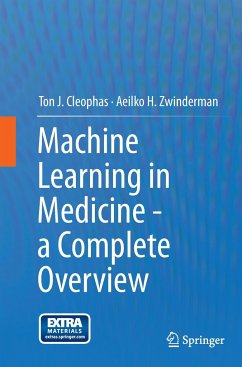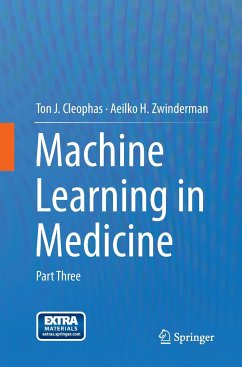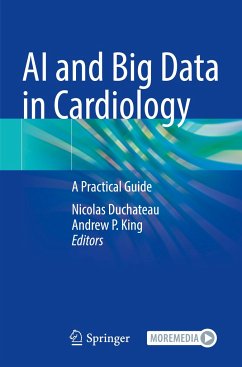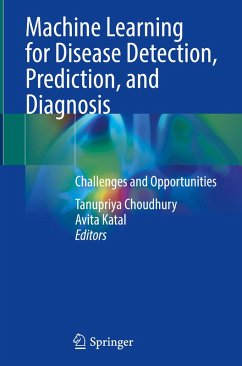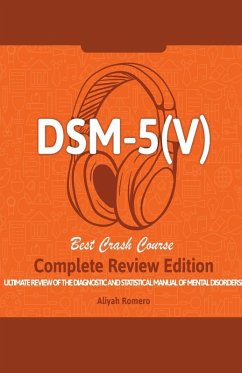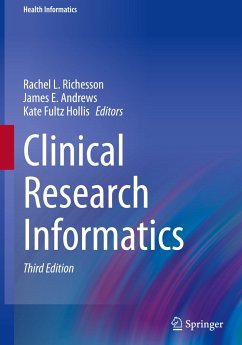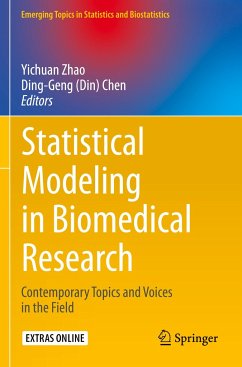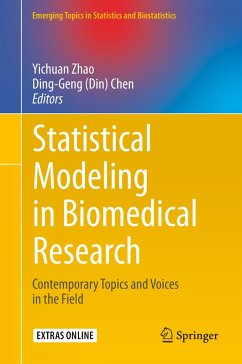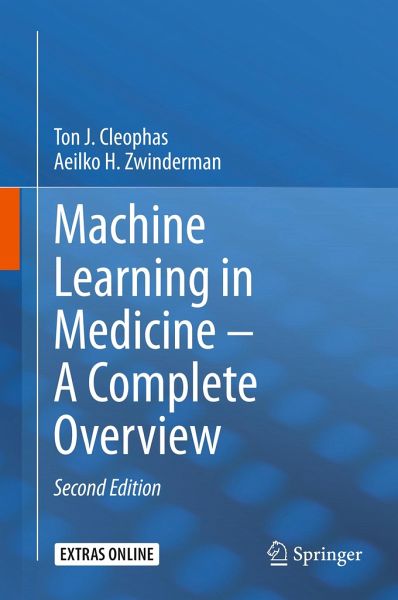
Machine Learning in Medicine - A Complete Overview
Versandkostenfrei!
Versandfertig in 6-10 Tagen
115,99 €
inkl. MwSt.
Weitere Ausgaben:

PAYBACK Punkte
58 °P sammeln!
Adequate health and health care is no longer possible without proper data supervision from modern machine learning methodologies like cluster models, neural networks, and other data mining methodologies. The current book is the first publication of a complete overview of machine learning methodologies for the medical and health sector, and it was written as a training companion, and as a must-read, not only for physicians and students, but also for any one involved in the process and progress of health and health care.In this second edition the authors have removed the textual errors from the ...
Adequate health and health care is no longer possible without proper data supervision from modern machine learning methodologies like cluster models, neural networks, and other data mining methodologies. The current book is the first publication of a complete overview of machine learning methodologies for the medical and health sector, and it was written as a training companion, and as a must-read, not only for physicians and students, but also for any one involved in the process and progress of health and health care.
In this second edition the authors have removed the textual errors from the first edition. Also, the improved tables from the first edition, have been replaced with the original tables from the software programs as applied. This is, because, unlike the former, the latter were without error, and readers were better familiar with them.
The main purpose of the first edition was, to provide stepwise analyses of the novel methods from data examples, but background information and clinical relevance information may have been somewhat lacking. Therefore, each chapter now contains a section entitled "Background Information".
Machine learning may be more informative, and may provide better sensitivity of testing than traditional analytic methods may do. In the second edition a place has been given for the use of machine learning not only to the analysis of observational clinical data, but also to that of controlled clinical trials.
Unlike the first edition, the second edition has drawings in full color providing a helpful extra dimension to the data analysis.
Several machine learning methodologies not yet covered in the first edition, but increasingly important today, have been included in this updated edition, for example, negative binomial and Poisson regressions, sparse canonical analysis, Firth's bias adjusted logistic analysis, omics research, eigenvalues and eigenvectors.
In this second edition the authors have removed the textual errors from the first edition. Also, the improved tables from the first edition, have been replaced with the original tables from the software programs as applied. This is, because, unlike the former, the latter were without error, and readers were better familiar with them.
The main purpose of the first edition was, to provide stepwise analyses of the novel methods from data examples, but background information and clinical relevance information may have been somewhat lacking. Therefore, each chapter now contains a section entitled "Background Information".
Machine learning may be more informative, and may provide better sensitivity of testing than traditional analytic methods may do. In the second edition a place has been given for the use of machine learning not only to the analysis of observational clinical data, but also to that of controlled clinical trials.
Unlike the first edition, the second edition has drawings in full color providing a helpful extra dimension to the data analysis.
Several machine learning methodologies not yet covered in the first edition, but increasingly important today, have been included in this updated edition, for example, negative binomial and Poisson regressions, sparse canonical analysis, Firth's bias adjusted logistic analysis, omics research, eigenvalues and eigenvectors.



